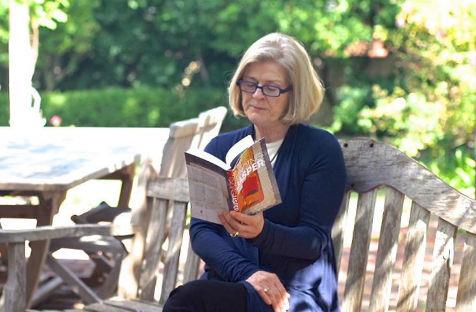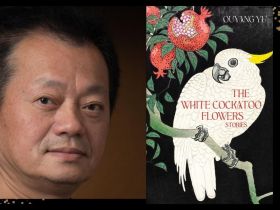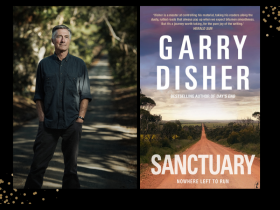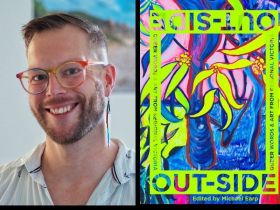Many authors dream of signing an huge multi-book deal with a large publisher. But big is not always the best option.
While using a small publisher is often seen as a consolation prize, it can be a tailored experience that allows you to publish what you want for whom you want.
The exact extent of the Australian independent publishing market is hard to estimate. Mary Masters, General Manager of The Small Press Network (SPUNC), a representative group for small and independent Australian publishers says, ‘We currently have 130 core members who come in all shapes and sizes and we also have some NZ members. While our current membership is representative of the breadth of publishing that our sector has to offer, it is by no means comprehensive of the publishers that exist.’
Many small independent publishers cover niche topics such as crime, erotica or poetry. While this specialisation of content allows for unique publications, it can limit sales.
Nonetheless, financial return isn’t the only reason to publish, as Caroline Wood, publisher and director of Margaret River Press, and Lynne Leonhardt, author of Margaret River Press publication Finding Jasper, discussed at the Small publishers are an author’s best friend panel of the Emerging Writer’s Festival 2013.
‘I didn’t go into publishing thinking I would make money. My main thing is to have fun and produce some good works,’ said Wood.
This is all well and good, but if money is limited what are the upsides for an author who chooses to go with a small publisher?
Accessibility
The path to professional publication can often be insurmountable for an emerging author. Many large publishers don’t accept unsolicited manuscripts and the few that do undoubtedly put them in a huge slush pile of submissions and give them a very brief assessment.
While small publishers will still put your unsolicited work in a slush pile, these piles are smaller and as a result more thoroughly read. This can speed up the submission process and give your work a greater chance of getting noticed.
It is also easier to make personal contact with smaller publishers at industry and community events. These face-to-face meetings can lead to a greater interest in your submission.
Leonhardt reflected, ‘Approaching publishers can be a long process. I tried for four years. Publishers don’t like multiple handouts so there’s a lot of waiting involved.’
Leonhardt approached around eight publishers in that time with no luck. Then she met Wood at a function and was encouraged to submit her manuscript. ‘I think it’s really important to have that personal contact,’ said Leonhardt. ‘It gave me a head start.’
Dedication
Little Raven is an independent erotic publisher that was born from an open mic night at a local pub. The imprint now publishes erotic collections and runs writer workshops. Director Van Roberts is enthusiastic about her imprint and the small publishing scene. She says, ‘Small, independent publishers have a lot of passion and dedication, which they share with their authors.’
When a small publisher selects your work it closely reflects upon their imprint. It is therefore in the publisher’s best interest to support your work to the best of their ability.
This limited catalogue also means more attention. When asked to consider the benefits of small publishing Wood said, ‘I think we probably offer more author care – it is a very close bond that you develop as you don’t have loads of authors.’
Leonhardt is obviously happy with her experience; she described publisher Wood as a best friend. ‘We were able to build up a feeling of trust that may not have been there with a big publisher … She met all the deadlines, did all the things she said she was going to do, followed all that she said and I think that’s a fantastic effort. I don’t know how that sits with other publishers – I mean, I’ve heard horror stories about some authors having to wait until 2015 (to be published) – but I just felt so lucky.’
Wood recognises the exceeding effort she made with Leonhardt’s publication and joked, ‘She was the third person in our marriage. I took her to bed every night.’ This after-hours attitude seems to be the norm for a dedicated small publisher.
Willingness to try new things
It’s quite rare for a large publisher to sidestep tried-and-tested publishing avenues and take a real risk. Roberts believes that the passion and dedication of small publishers stems from personal interest, which translates into a willingness to take on more experimental works regardless of financial viability.
‘Large publishers don’t put out work that is seen as edgy or controversial. There are too many risks: it won’t sell or it might damage their reputation. Small publishers have a history of taking risks and publishing for the sake of creating something different. Some examples of daring, independent publishers are Black Sparrow Press, City Lights, Green Ant Press, Horror Sleaze Trash. When I put together our collections, I usually think this is a great story rather than, will it sell?’
Wood agrees. ‘We probably take more risks with our publications. Short stories don’t do well and don’t make money but I think it is an incredible skilled form of writing and should be published.’
Extended support
Another benefit in going with a smaller publisher is the ongoing support that will be given to your publication.
‘Because of the smaller output, they (small publishers) will likely also have a much smaller backlist of books, meaning that your book will stay important to them much longer than just the 90 day sale-or-return period that the big publishers will get behind your book,’ says Masters. ‘They will keep publishing and passionately promoting it long after it is first released. And you will never have to be offered the option to buy the remainder stock for the print price before the book is pulped because they won’t give up and cut their losses, they will keep backing the product and keep backing you.’
Leonhardt believes this is what will happen with her publication. ‘I may not have big upfront sales but it’ll (Finding Jasper) have a long steady life as it will be showcased.’
Embrace of the digital
Digital publishing provides new opportunities for small publishers in terms of run size and distribution. In light of this, many small publishers have embraced the digital more readily than larger companies and can now compete on a more even scale.
Roberts says, ‘It’s much cheaper to publish an eBook than do a print run, and it also gives us the advantage of being on an international platform. Through digital publishing we can use websites like Amazon, rather than relying on distribution to a few bookshops.’
Masters looks at trends through SPUNC and agrees … with reservations. ‘Small publishers have generally been more nimble in their adaptation to digital technologies and innovative with their output, but it’s still hard to promote books online which is a global marketplace.’
Wood echoed this sentiment. ‘I love it but it is a challenging to get noticed among all the books so we need to think of new and innovative ways of marketing.’
Drawbacks
While a small independent organisation may be a more personalised experience with a stronger focus on quality there are clear drawbacks that need to be considered before signing on the dotted line.
‘I think authors don’t get paid much especially if you use a distributor who takes 65-70% of the RRP (Recommended Retail Price) which leaves both the author and publisher very little,’ said Wood. ‘It is fine if you have the volume of publications that big publishing houses have but when you are dealing with small print runs and titles it is difficult to make money with the 65-70% distributor fees.’
Both Wood and Masters agree that distribution and accessing markets is a particular struggle. ‘Bookshops are risk averse at present so they tend to go for the big names, big publishing houses,’ said Wood.
She also mentions the difficulty in getting reviewers to review the books. ‘They seem to review books from large publishing houses – probably because they are releasing more and also prize winning books and well known authors get lots of reviews.’
Still, Wood believes with an imaginative and targeted marketing approach it is possible to promote a book effectively. ‘It’s not easy. You’re competing with people with bigger budgets, but it can be done.’
The smallest publisher
Of course there is one avenue of publishing we haven’t yet considered. With the rise of new technologies, self-publishing has become somewhat of a trend with the occasional success story inspiring many budding authors to DIY.
Andrew Rule, associate editor for the Herald Sun and successful co-author of the Underbelly true crime series with partner John Silvester, chose this route back in the early nineties for financial reasons. He writes, ‘A publisher typically gambles on getting a return of between 30% to 40% of RRP, less production, printing and author royalties.’ By establishing his own imprint Floradale Productions in collaboration with Silvester’s Sly Ink imprint he was able to maximise his profit.
However, successful self-publishing is hard work and requires a strong ability for production, design, marketing and distribution with only you and only you at the helm. There is also no external editorial stage, a process that can add invaluable quality to a publication.
At the end of the day it is ultimately up to the author to assess which mode of publication will best suit them. Masters simply reminds us that small publishers should not be so readily dismissed.
`You might miss out on getting the huge advance against royalties that a big publisher might give out, but if you truly love your writing and want to work with a publisher who will invest as much in the publishing as you have in the writing then a small publisher is the way to go.’





